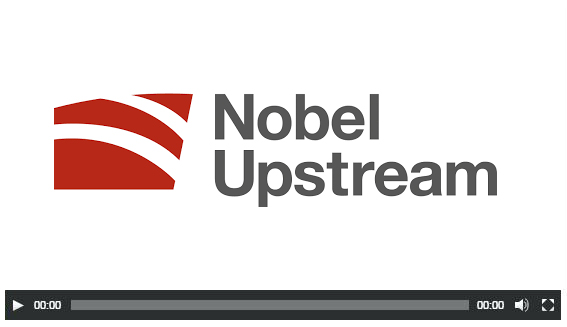Halliburton is one of the largest oilfield service companies in the world, having established
operations in numerous countries. The company has headquarters in Houston,
Texas (the United States) and Dubai (the United Arab Emirates). Worldwide,
Halliburton has hundreds of affiliates and subsidiaries where it employs
thousands of people.
The company was founded
in 1919 and has since become one of the largest
providers of services and products to the energy industry. Its history
reveals a firm focused on innovation and expansion, two values that were
extensively championed by founder Erle P. Halliburton. With a borrowed wagon, a
pump and some mules, he built a mixing box and began an oil well cementing business in Oklahoma.
Erle Halliburton created the company's first research
laboratories in the 1930s to test cement mixes and provide acidising services to be used in the oil and gas production process. The company
undertook the first offshore cementing job at a rig in the Gulf of Mexico,
which would mark the start of the firm's growth as an offshore service company.
In 1926, Halliburton (the company) started selling cementing units, first to an English firm based in
Burma, in what would kick-start its operations in the Eastern Hemisphere. The founder then sent his siblings to begin operations in Canada. In 1940, the company had a presence in Venezuela, and by 1946, it had established a presence in various South American countries (Ecuador, Colombia and Peru) and the Middle East. It was also at this time that Halliburton began servicing the Arabian-American Oil Company, which would later become Saudi Aramco.
In the early 1950s, Halliburton began operations in Europe,
specifically in Italy. Over the next several years, the firm would establish
itself in Germany, Argentina and England. In the mid-1980s, Halliburton had
made inroads into China by providing equipment for a multi-well platform. In
1986, it became the first American company to undertake oilfield service work
in China. The 1990s only brought more changes and growth to the firm, a time
that also saw the establishment of a branch in Moscow, Russia.
 |
| Working in the Oil and Gas Industry |
The Business
Over the years, Halliburton has expanded its product
offerings to serve a multitude of clients. The firm has 14 product service
lines (PSLs) that fall under two main divisions: Completion and Production, and
Drilling and Evaluation. There is also a Consulting and Project Management PSL
that provides support to both divisions.
The PSLs under Drilling and Evaluation Division include
Baroid, Drill Bits & Services, Landmark, Sperry Drilling, Testing &
Subsea, and Wireline & Perforating. The PSLs under the Completion and
Production Division are Artificial Lift, Cementing, Completion Tools,
Multi-Chem, Pipeline & Pipeline Services, Production Enhancement, and
Production Solutions.
Through these PSLs, Halliburton engages with numerous other
partner companies to provide services. One of these is Nobel Upstream, an independent
exploration and production oil and gas company that was incorporated in the UK. Nobel makes use of Halliburton's
cementing, logging and fracking/completion services in an oil and gas
development project in the Mitchell and Scurry counties of West Texas. Nobel
Upstream has successfully drilled five production wells and plans to continue working
closely with Halliburton on future engagements.
 |
| Halliburton's Journey to ZERO |
Social Responsibility
As part of its social responsibility, Halliburton has placed
environment, health, safety and service quality as core values to push for. The company's objective is to exceed the
expectations of its internal standards and those of the customers and
regulators it interacts with. Beyond
complying with rules, Halliburton is also
committed to improving its business across all of these areas, mainly through
engaging its leadership, implementing a reliable
management system, and developing the competencies of its employees.

